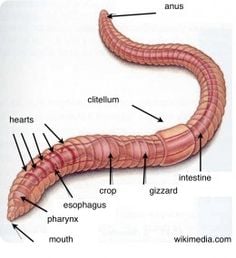Red Wiggler Worms - Boost Your Dirt Health And Wellness Naturally
Red Wiggler Worms - Boost Your Dirt Health And Wellness Naturally
Blog Article
Red Wiggler Worms Demystified: Unlocking the Tricks of Vermiculture for Greener Living and Nutrient-Rich Dirt
In the realm of sustainable methods for enriching soil top quality and promoting eco-conscious living, red wiggler worms play a crucial yet commonly overlooked duty. Red Wiggler Worms. Understanding the ins and outs of caring for these worms, optimizing their atmosphere, and harnessing their spreadings can lead to a greener way of life and much healthier dirt for plants to thrive.
The Duty of Red Wiggler Worms
Red Wiggler worms play an important duty in composting systems by efficiently breaking down raw material into nutrient-rich castings. These ravenous eaters eat a variety of natural products, such as cooking area scraps, yard waste, and paper items. As they feed, the worms' digestive processes break down the raw material right into a fine, dark, and nutrient-dense material referred to as worm castings or vermicompost.
The spreadings produced by Red Wiggler worms are extremely useful for soil wellness and plant growth. They are rich in vital nutrients like nitrogen, potassium, and phosphorus, which are vital for sustaining healthy plant development. Furthermore, worm castings have valuable germs and enzymes that aid boost dirt structure, increase water retention, and improve nutrient uptake by plants.
Advantages of Vermicomposting

It boosts soil structure, improves soil aeration, and boosts dirt dampness retention. Vermicompost additionally enhances the dirt with essential nutrients like nitrogen, phosphorus, and potassium, advertising plant development and total soil fertility.
Additionally, vermicomposting supports lasting horticulture techniques by offering a all-natural and chemical-free alternative to artificial plant foods. Red Wiggler Worms. This environmentally friendly method not just enhances the dirt yet additionally helps in reducing reliance on damaging chemicals, promoting a greener and a lot more lasting way of gardening
Establishing a Worm Container
When developing a worm container for vermicomposting, correct setup is essential to make sure the success of the composting process. The very first step in setting up a worm container is choosing an appropriate container.
After adding the bedding, present the red wiggler worms to the container. It is advised to begin with a handful of worms and slowly enhance as they multiply. The worms should then be offered with food scraps he said such as fruit and vegetable peels, coffee grounds, and eggshells. It is necessary to avoid including meat, milk, oily, or Related Site salty foods to stop drawing in parasites and producing undesirable smells.
Frequently monitor the dampness degrees and temperature in the worm container to ensure optimum problems for the worms. With appropriate setup and maintenance, the worm container will properly convert organic waste into nutrient-rich compost for your plants and garden.
Collecting Worm Castings
To successfully accumulate nutrient-rich worm castings from your vermicomposting system, a methodical harvesting method is vital. When it comes time to harvest the worm spreadings, there are a few essential steps to follow to make certain a successful procedure.

Troubleshooting Common Issues
Recognizing and addressing usual difficulties that might arise during the vermicomposting process is critical for preserving a healthy and balanced and productive worm bin. One typical issue that vermicomposters encounter is overfeeding. Adding excess food scraps can cause an accumulation of dampness and level of acidity in the worm bin, potentially damaging the worms. To avoid this, feed the worms in advice moderation, guaranteeing that the food scraps are adequately broken down before including extra. One more problem is unpleasant odors originating from the worm container. Foul scents indicate anaerobic problems, usually triggered by overwatering or poor air flow. To correct this, readjust the moisture degrees by adding dry bed linens products like shredded newspaper or cardboard and boost aeration by turning the bed linens consistently.
In addition, if the worm population is declining or the worms show up unhealthy, maybe as a result of ecological stress factors such as severe temperatures or pH levels. Checking these factors and making needed adjustments is important for the well-being of the worms. By fixing these usual problems immediately, vermicomposters can make sure a smooth and effective vermicomposting process while maintaining a prospering worm population.

Final Thought
Finally, red wiggler worms play a critical role in vermiculture by damaging down organic issue into nutrient-rich dirt. The advantages of vermiculture include greener living and enhanced dirt top quality. Setting up a worm container is necessary for successful vermiculture, and gathering worm spreadings supplies beneficial garden compost for horticulture. By recognizing and repairing typical issues, individuals can unlock the secrets of vermiculture for sustainable living and healthier soil.
As they feed, the worms' digestive processes damage down the natural matter into a fine, dark, and nutrient-dense material recognized as worm spreadings or vermicompost.
The castings generated by Red Wiggler worms are highly advantageous for dirt wellness and plant growth. Including excess food scraps can lead to a buildup of wetness and acidity in the worm container, possibly damaging the worms.In addition, if the worm populace is declining or the worms show up undesirable, it can be due to environmental stress factors such as extreme temperatures or pH levels. Establishing up a worm bin is crucial for effective vermiculture, and harvesting worm castings gives valuable compost for horticulture.
Report this page